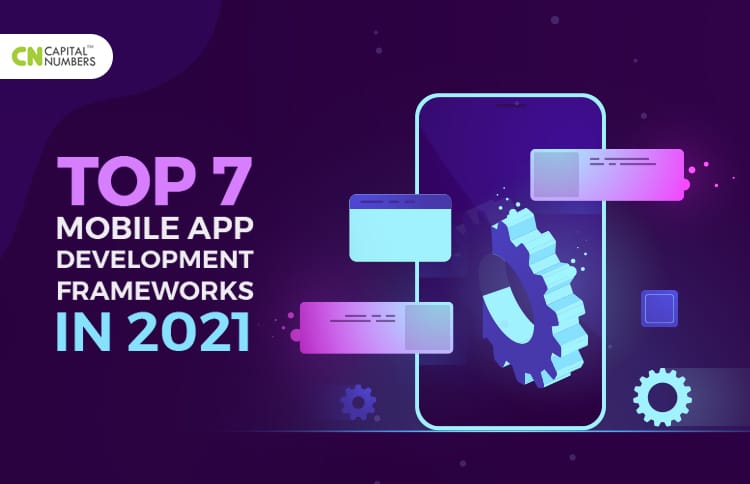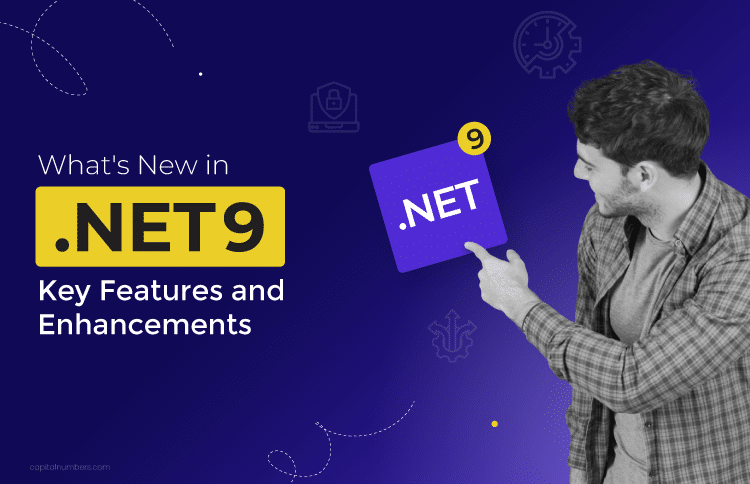Top 7 Mobile App Development Frameworks in 2021
Table of Contents
In the first half of 2020, worldwide spending across app stores reached around $50.1 billion. First-time mobile app installs were up 26.1% year over year in 2020, with a whopping 71.5 billion downloads. (Source: Forbes)
Moreover, recent reports indicate that in January 2021, around 96.7% of apps in the Google Play app store were freely available, and 92.7% of iOS apps were free. There have also been predictions that mobile apps will generate over US$ 935 billion in revenues via paid downloads and in-app advertising in 2023. (Source: Statista)
The numbers are not only impressive, but they indicate that mobile apps are no longer a nice-to-have but a must-have. Experts cite that worldwide mobile app spending and installs will witness a significant rise in 2021 too.
In this current climate, businesses must fully leverage best-in-class mobile app development frameworks to tap into unmissable opportunities and succeed in this thriving app economy.
So, we’ve listed down the top 7 mobile app development frameworks that are expected to top the charts in 2021 and beyond.
-
- Flutter by GoogleLaunched by Google first in May 2017 for its initial release, and then in Dec 2018 for its stable release, Flutter is a Software Development Kit (SDK) for mobile application development. It is an open-source SDK through which applications can be developed which have cross-platform compatibility. The language used while working with Flutter is Dart.This SDK is most suitable for creating hybrid applications. Hybrid applications are those which have a combination of Native applications, which are installed in the device and use the native hardware and software of that device, and HTML5 applications, which are deployed over the internet. Hybrid applications are in trend because of this reason.
Flutter uses Skia, a 2-D rendering engine to create and design visuals. The visuals created through Skia have the Cupertino and Material Design style. Flutter also makes testing the developing project very easy as you do not have to restart everything you are doing in the presence of any errors.
- Flutter by GoogleLaunched by Google first in May 2017 for its initial release, and then in Dec 2018 for its stable release, Flutter is a Software Development Kit (SDK) for mobile application development. It is an open-source SDK through which applications can be developed which have cross-platform compatibility. The language used while working with Flutter is Dart.This SDK is most suitable for creating hybrid applications. Hybrid applications are those which have a combination of Native applications, which are installed in the device and use the native hardware and software of that device, and HTML5 applications, which are deployed over the internet. Hybrid applications are in trend because of this reason.
-
- React Native by FacebookReact Native, although being in the market since 2013, has started gaining more popularity in the recent times. It is a framework launched by Facebook that is used to build applications using JavaScript that run on Android as well as iOS. It is an open-source framework which enables very fluent application experiences.The React Native framework takes control of the View and Controller part of the MVC that helps in generating native views with the use of JavaScript. Therefore, using this framework, all the application logic is written and run through JavaScript whereas the user interface designing is conducted completely in a native environment.
-
- jQuery Mobile jQuery is a framework that is used for the development of HTML5 applications. It is a JavaScript library developed by the jQuery project team and launched first in October 2010, as an initial release, and then later in 2014, as a stable release.The applications developed using this framework can be run on all platform devises with only one code version. Through jQuery, one can develop both, web as well as mobile applications that support different operating systems like Windows, BlackBerry, Mac, Kindle, Firefox, etc. The ‘mantra’ behind this framework is ‘do less, get more’, which is why it can be run on every platform with only a single code.
-
- IonicBuilt on Apache Cordova and AngularJS, Ionic is a completely open-source Software Development Kit (SDK) that was released in 2013. Since then, it has gained a lot of popularity among developers and is being used to develop cross-platform web, desktop and mobile applications.This framework helps in building client-side codes with a combination of JavaScript, HTML, and CSS3. The applications made using this framework are scalable and robust. Ionic also has an HTML5 element that aids in the development of hybrid applications.
Ionic provides a Command Line Interface (CLI) that helps users to start creating applications using simple commands. Developers can also add separate front-end packages and Cordova plugins to their projects. Ionic makes it simple to enable push notifications, build native binaries and generate splash screens and application icons.
- IonicBuilt on Apache Cordova and AngularJS, Ionic is a completely open-source Software Development Kit (SDK) that was released in 2013. Since then, it has gained a lot of popularity among developers and is being used to develop cross-platform web, desktop and mobile applications.This framework helps in building client-side codes with a combination of JavaScript, HTML, and CSS3. The applications made using this framework are scalable and robust. Ionic also has an HTML5 element that aids in the development of hybrid applications.
-
- Xamarin by MicrosoftXamarin is a development framework that is used to create mobile applications that are written in C#. The applications created with Xamarin can be run on multiple platforms and supports operating systems like Windows, iOS, and Android. This framework also offers the benefit of code sharing, where you can share your codes using Windows and Mac operating systems.It also provides the facility of directly including different libraries from Java, Objective-C, and C++. This aids the developer in using third party codes from these languages. Therefore, working with this framework to develop mobile applications helps in saving cost and time.
-
- Corona by Corona Labs Inc.Developed by Corona Labs Inc. and first launched in 2009, as an initial release, and then in 2018, as a stable release, Corona is an SDK (Software Development Kit) used to develop mobile applications. These mobile applications can be run cross-platform on operating systems like iOS, Kindle, Android, Windows, etc.This framework works very fast and is considered to be about 10 times faster than all the other frameworks for mobile application development. Corona is written in Lua which is a light weighted language that provides easy usage, speed, and flexibility to the applications developed by it.
There are many native libraries or APIs available in this framework for C, C++, Java or Objective-C. You can also use many additional plugins to extend Corona’s features. Therefore, if you are in need of rapid development of mobile applications, without compromising with the quality of the applications developed, then Corona is the most suitable framework for you.
- Corona by Corona Labs Inc.Developed by Corona Labs Inc. and first launched in 2009, as an initial release, and then in 2018, as a stable release, Corona is an SDK (Software Development Kit) used to develop mobile applications. These mobile applications can be run cross-platform on operating systems like iOS, Kindle, Android, Windows, etc.This framework works very fast and is considered to be about 10 times faster than all the other frameworks for mobile application development. Corona is written in Lua which is a light weighted language that provides easy usage, speed, and flexibility to the applications developed by it.
- Apache CordovaApache Cordova is a framework which is considered to be the open-source distribution of Cordova. It is written in languages including C#, C++, CSS, HTML, JavaScript, Java, and Objective C. This framework is mostly used for developing hybrid applications that are neither fully web-based not completely native.Adobe Cordova allows developers to simultaneously see any change or alteration in the application development. It also provides developers with the freedom of working without any restrictions of hardware. You can create applications that support most of the operating systems including iOS and Android.
The framework also provides a number of plugins that can be used to increase its functionalities. You can also access the device’s native APIs to develop more efficient mobile applications.
These are the top 7 frameworks that are likely to take over the mobile applications development market in 2021. These frameworks are the most essential tools that build mobile as well as web applications. Therefore, if you are looking for the right framework to start developing a project in, make sure to choose one after careful consideration. This is because every project has a different requirement, so choose the framework that can help you meet your requirements with ease.















